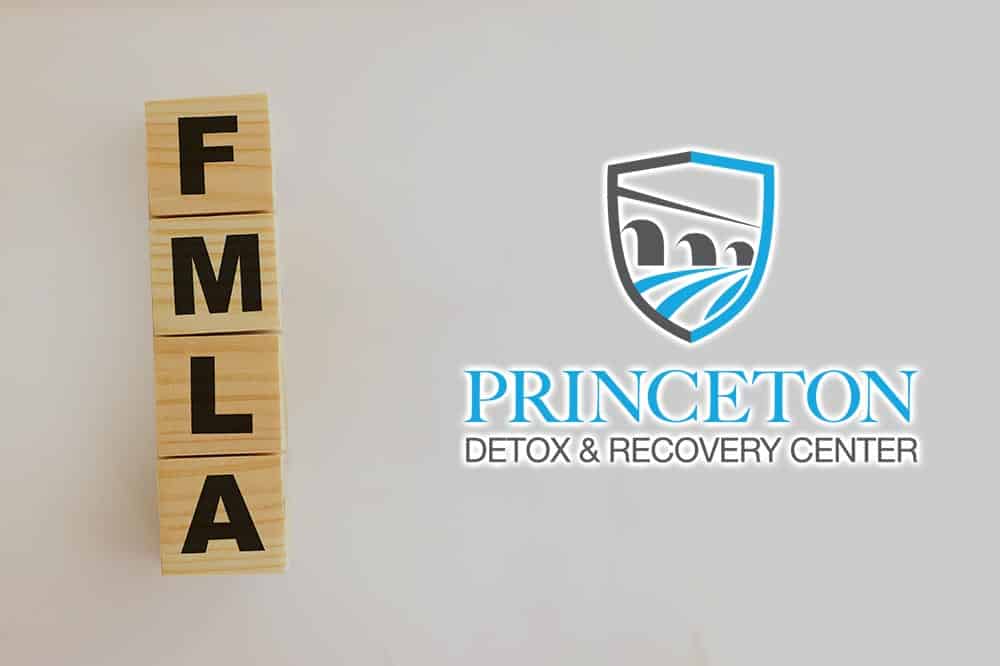Leaving Work for Treatment
Using FMLA to Protect Your Job While in Detox
Heroin addiction is one of the biggest public health threats Americans currently face. Despite this fact there are numerous factors that prevent people from seeking and receiving the professional addiction treatment services they so desperately need. For some people, fear of judgement from peers might prevent them from seeking the help they need. Others might be unaware of the accessible resources available to them; still others might fear loss of employment.
At Princeton Detox & Recovery Center we remain dedicated to helping people of all ages and walks of life enter into a program of recovery and successfully overcome heroin addiction. Our detox and recovery program is accessible and flexible, catering to the unique needs of each individual client. We understand people who have careers cannot always step away for a prolonged period of time. We also understand how scary it can be to walk away from your personal responsibilities while you tend to your physical, mental and emotional health. The good news is there are laws in place — like the Family and Medical Leave Act (FMLA) — geared towards ensuring job security for those who need treatment and are currently employed. To learn more about using FMLA for heroin detox, contact us today.
What is FMLA?
The United States Department of Labor first implemented the Family and Medical Leave Act in 1993. This U.S. labor law requires covered employers to provide their employees with unpaid, job-protected leave for qualified medical or family-related reasons. An employee who utilizes FMLA for drug rehab will still have access to group health insurance coverage under the same terms and conditions they would have had they not taken leave.
Eligible Employees Have Access To:
- 12 work-weeks of unpaid leave in a 12-month period for the birth of a child, caring for an ill family member or dealing with a serious health condition that makes completing work tasks difficult
- OR, 26 work-weeks of leave during a single 12-month period to care for a covered service member with a serious injury or illness if the eligible employee is the service member’s spouse, son, daughter, parent, or next of kin (military caregiver leave).
If you are currently employed full-time and you have been struggling with heroin addiction, you might qualify for job-protected leave under FMLA. Addiction is a complex illness, and a person who struggles with drug addiction of any type or severity experiences a range of symptoms which must be treated in a designated treatment center. Addiction does not resolve on its own over time, especially when a substance as addictive as heroin is involved. In order for a person to get better they need to seek professional help. Life is on the line.
At Princeton Detox & Recovery Center we employ evidence-based detox methods including medication assisted treatment, behavioral therapy and holistic approaches to recovery. Our main priority is providing our clients with a safe and pain-free heroin withdrawal while equipping each individual with the healthy coping mechanisms and life skills they need to stay sober for years to come. Contact us today to learn more.
We Are Here For You
Let Us Help You Heal
Our Heroin detoxification experience is second to none.
Learn how we can help by speaking with one of our Treatment Advisors today.
Is Heroin Detox Right for Me?
Heroin withdrawal is rarely life-threatening. However, the physical and psychological symptoms that go hand-in-hand with heroin withdrawal are so uncomfortable that if a person is not medically supervised, they often relapse before the detox process is complete.

At Princeton Detox & Recovery Center we combine medication assisted treatment options with other evidence-based detox methods. We provide our clients with access to therapeutic care, case management services and aftercare planning. Committing to inpatient heroin detox is about more than undergoing withdrawal in a safe and medically monitored facility. It is about paving the road for continuous sobriety. If you have been struggling with a mild or moderate heroin use disorder you might be wondering if detox is really necessary. Should you risk taking a leave of absence? Should you attempt to detox at home over the weekend? We urge you to weigh out the pros and the cons of attending a heroin detox program.
Benefits include:
- You have access to 24/7 medical care, meaning all symptoms of withdrawal are going to be effectively treated as soon as they develop.
- At Princeton Detox & Recovery Center we offer dual diagnosis detox services for clients who have been struggling with an underlying mental health condition.
- You have access to one-on-one, group and family therapy sessions, helping you kickstart the healing process.
- When you enter into an inpatient detox program you are physically removed from your drug of choice, making relapse unlikely.
- You are temporarily removed from your personal responsibilities (including your vocational responsibilities) allowing you to focus all of your attention on recovery.
- You have access to medication assisted treatment options, which can be extremely beneficial for acute and post-acute opioid withdrawal.
- Upon admission to our detox program you are assigned a case manager who helps you determine which subsequent level of care is the most appropriate.
If you take an honest look at the benefits associated with a short-term stay in inpatient detox you will find the pros outweigh the cons. To learn more about our program of heroin detox or to get started with our simple admissions process, contact us today.
Ready To Begin Your Detox?
Don’t let addiction control your life.
Call us today and let’s get you started on the path to a better you.
What Steps Should I Take After Detox?
Once you have completed detox you have another big decision to make. Do you transition into a higher level of clinical care like a residential inpatient treatment center or intensive outpatient treatment center? As part of the Guardian Recovery Network we work directly with a variety of accredited treatment programs throughout the country. The level of care best-suited for you depends heavily on your personal needs and clinical requirements. If you are currently employed you might be concerned about promptly returning to work. We understand different people have varying needs, and professionals who are working demanding careers require a greater level of flexibility. Guardian Recovery Network offers several Executive Programs geared towards helping working professionals receive the treatment they need while attending to their personal obligations. Our Executive Program provides clients with private bedrooms in which work responsibilities can be carried out remotely and access to computers, high-speed internet and telephones. We always prioritize discretion and confidentiality, and we offer travel support whenever necessary. Clients who make the decision to transition into an Executive Program have access to fitness facilities and nutritious, chef-prepared meals. Our main priority is ensuring that all individualized needs and requirements are being met.
Begin Your Recovery Journey Today
At Princeton Detox & Recovery Center we understand how overwhelming it can seem to navigate using FMLA for heroin detox while actively smoothing out all of the other fine details. The good news is we are available to help walk you or your loved one through every single step of the process. Because heroin addiction progresses so rapidly we know there is little time to wait when it comes to seeking professional treatment. We have developed an admissions process that is simple, uncomplicated and can be completed in roughly 15 minutes during our initial phone call. All you have to do is make initial contact and we will take it from there. If you or your loved one is still on the fence about taking a leave of absence and seeking help, we encourage you to consider how dramatically your quality of life will improve once you do — not just professionally, but in every single area.

Reviewed for accuracy by:
Amanda Hilzer M.Ed, CAADC, IADAC, ICCS, LCADC, CCS
Amanda graduated from Lehigh University with both an undergraduate degree in Psychology and a Master’s of Education degree in Counseling Psychology and has worked in the field of substance use disorder treatment and mental health treatment as a counselor and as a clinical manager for over 14 years.


































